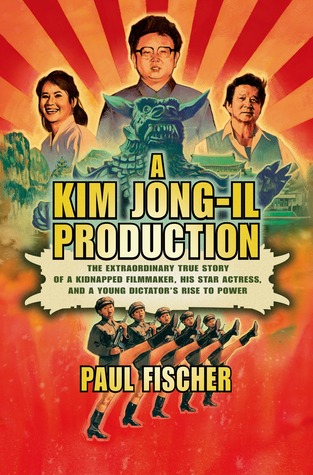 By PAUL FISCHER (Flatiron Books; 2015)
By PAUL FISCHER (Flatiron Books; 2015)
Here’s a real-life account that is in fact stranger than fiction: the 1978 kidnapping of the veteran South Korean film director Shin Sang-Ok and his actress ex-wife Choi Eun-Hee by Kim Jong-Il, who forced them to make a string of North Korean propaganda films (including the notorious GODZLLA wannabe PULGASARI) before they managed to escape to America in 1986. It’s all recorded here by first-time author Paul Fischer with a thoroughness and accessibility that cannot be faulted.
Not everyone believes Shin and Choi were kidnapped by North Korea. Many claim they willingly defected in an effort to revive their flagging careers, but Fischer makes a convincing case that the abduction actually occurred. To be sure, the story is a bizarre one, with Kim Jong-Il, then North Korea’s Minister of Propaganda, engineering the kidnappings in a misguided effort to bolster his country’s standing in the international film community. As asinine as it sounds, this gambit was not the most outrageous act committed by Kim Jong-Il.
Shin and Choi were at a low point in their careers when the abductions occurred. The two had been South Korea’s “golden couple” throughout the 1960s, but decreased movie theater attendance, increasingly stringent censorship laws and his own careless spending habits (apparently “He was good at making money, but had little talent for holding on to it”) did irreparable damage to Shin Sang-Ok’s status and reputation, while Choi Eun-Hee’s acting career stalled, seemingly permanently.
It was Choi, this book claims, who was kidnapped first. That abduction occurred in January 1978, with Choi lured to Repulse Bay in Hong Kong and from there transported to Kim Jong-Il’s palace, where she was wined and dined by Kim and his underlings as their “guest.”
Shin was snatched a few months later, after being unjustly arrested by South Korean police on suspicion of Choi’s kidnapping. His initial stay in North Korea wasn’t nearly as pleasant as Choi’s, as following two unsuccessful escape attempts he was subjected to nearly four years of brutal incarceration. He eventually cracked, and agreed to follow Kim’s dictates. In doing so Shin was faced with a paradox: he found himself working for a ruthless tyrant in a repressive country, yet was not entirely displeased to be granted free reign to make movies.
Things unfortunately weren’t nearly as convivial following Shin and Choi’s escape from North Korea in 1986. The movies Shin made in the United States, including the forgettable Disney kid comedy 3 NINJAS, failed to restore him to the prominence he once enjoyed, and his eventual return to South Korea was marked by dissonance and suspicion.
Author Paul Fischer relates this account with a great deal of old fashioned storytelling flair, fashioning a narrative that’s gripping, suspenseful and ultimately quite moving. Fischer also answers all the questions you might have had about life in North Korea, where citizens are arrested for not keeping their portraits of the “supreme leader” dust-free, executions run rampant, propaganda is blared through loudspeakers 24 hours a day and the prison system makes that of MIDNIGHT EXPRESS seem like a model of humane restraint. It’s an unforgettable setting to a story that I strongly doubt anyone would believe were it not based on documented fact.
